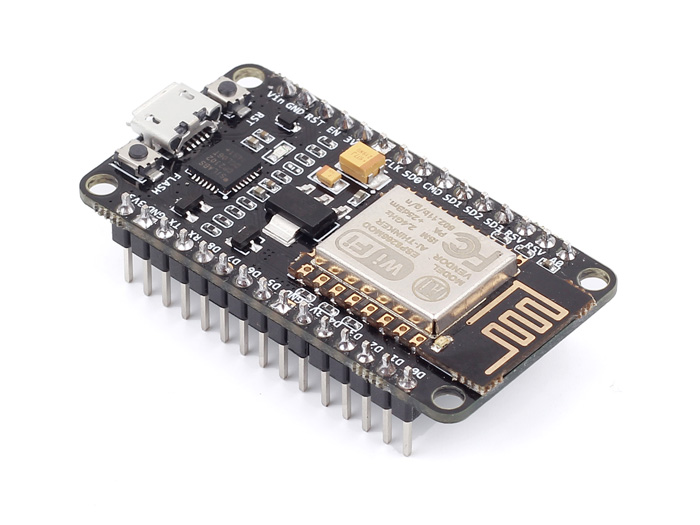Well i have been trying to program my 3pi Robot on my mac. And am running into issues. I am trying to do it through the Arduino IDE.
In configuring it, i got through every step but when selecting the Serial port in the Arduino IDE, there is no COM port. And i am assuming that it is the USB orangutang is installed correctly, but i am not 100% sure. I am using the USB port but am getting an error. I will post the error as soon as i get back to it, ive had to reconfigure my Arduino a few times for different projects. Edit: Note, I had the PGM02B, not the PGM03A I wanted to take some time to share some of the things I encountered when attempting to use the drivers I downloaded. I’m running Mac OS X 10.6.3, 64-Bit.
Cp210x Universal Windows Driver
I started off with the drivers from here: I found that the drivers were not being loaded on my system. I checked out to see if the drivers were loaded by using: from the OS X Terminal. If you see “/dev/tty.Pololu” everything is installed, if you don’t then you are probably seeing what I was. Some further investigation into the error console lead me to find this: May 15 21:53:31 Christopher-MacBook-Pro com.apple.kextd10: Can't read info dictionary for Pololu.kext: IOCFUnserialize: syntax error near line 3. May 15 21:53:58 Christopher-MacBook-Pro com.apple.kextcache582: Can't read info dictionary for Pololu.kext: IOCFUnserialize: syntax error near line 3.

Some hunting around I actually tracked down and opened the plist located in the Pololu kernel extension and found that it was not properly formatted. Here’s what I found in the driver’s Info.plist: code /code A proper plist should start with this: code /code For some reason, the driver wasn’t properly formatted and had escaped quotation marks in the XML file, and when OS X attempts to read the extension, fails because of the format. I found that I could actually fix the kext. Here are the steps I performed, unfortunately they’re all on the command line: sudo -i cd /System/Library/Extensions/Pololu.kext/Contents sed 's/ '/ '/g' Info.plist tmp && mv tmp Info.plist cd././ kextload Pololu.kext/ logout The idea of the commands here are to Switch to root so we can actually change the PList without errors, do a Search and Replace on the PList and fix the escaped quotes, then load the kernel module. Then logout of the root session. Hope the original poster hasn’t given up all hope and comes back to this thread. If not, hopefully someone else will stumble upon this fix.
Who ever at Pololu made the drivers could easily fix this problem. Hello Ben, The CP2102 drivers available from your website are customized in some way from the default Silicon Labs drivers. I think they’re built with a custom installer and using your own PID for the USB driver. Kodak 5220 download for mac free. Also they’re built with your manufacturing information in drivers, not Silicon Labs. quotePololu Driver version V1.02.2 CFBundleExecutable Pololu CFBundleIdentifier com.MCCI.Pololu Snip idProduct 32827 idVendor 4292 /quote Someone has done some customization to the drivers, however, they don’t work properly anymore.
CP2102 Evaluation Kit CP2102EK USB to UART Bridge Evaluation Kit Silicon Labs The CP2102EK Evaluation Kit contains a USB-to-UART/RS-232 evaluation board based on the CP2102, a complete set of device drivers, USB and RS-232 cables and full documentation. The CP2102 is a highly-integrated USB-to-UART bridge controller providing a simple solution for updating RS-232 designs to USB using a minimum of components and PCB space. Offering Baud rates aliasing and supporting additional data formats, the CP2102 is a pin-to-pin upgrade from CP2101. The CP2102 also includes a USB 2.0 full-speed function controller, USB transceiver, oscillator, EEPROM and asynchronous serial data bus (UART) with full modem control signals in a compact 5 x 5 mm MLP-28. No other external USB components are required. The CP2102EK Evaluation Kit contains a USB-to-UART/RS-232 evaluation board based on the CP2102, a complete set of device drivers, USB and RS-232 cables and full documentation. The evaluation board includes an RS-232 level translator and DB-9 connector as well as access to the 3.3 V UART signals.
The included CD-ROM contains the Virtual COM Port Drivers, USBXpress Driver Development Kit and additional documentation. Insert the CD-ROM into a system's CD-ROM drive. If using a Windows PC an installer will automatically launch, allowing you to install the software or read documentation by clicking buttons on the Installation Panel. If the installer does not automatically start when you insert the CD-ROM, run autorun.exe found in the root directory of the CD-ROM.
Refer to the Release Notes CP21xx CD.txt file on the CD-ROM for the most recent information regarding versions and known problems and restrictions. If a non-Windows PC is used, manually browse to the directory on the CD-ROM that contains the software for your OS. USB Function Controller and Transceiver. USB specification 2.0 compliant; full-speed (12 Mbps). Integrated 1024-byte EEPROM for custom Baud rates, vendor ID, etc.